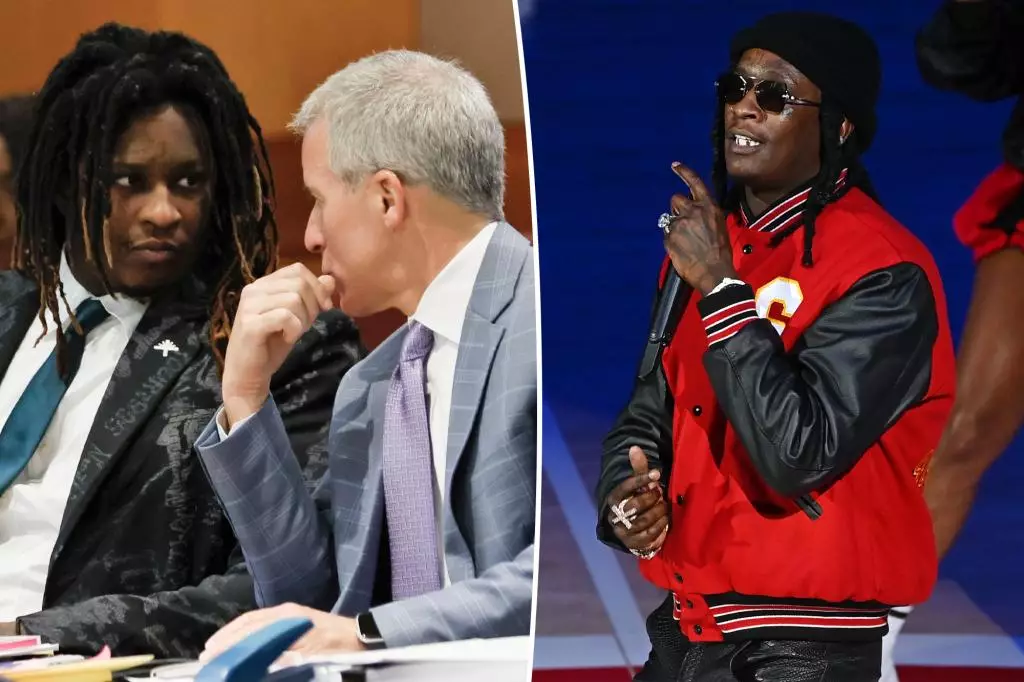The recent acceptance of a plea deal by rapper Young Thug, whose real name is Jeffery Lamar Williams, marks a significant milestone in the long-running legal saga that has captivated fans and observers alike. This development not only brings an end to what has been described as Georgia’s longest criminal trial but also underscores the complexities of intertwining fame, legal troubles, and personal accountability within the realm of hip-hop culture. The plea deal, announced in a courtroom in Atlanta, necessitates Young Thug to accept responsibility for multiple charges—including drug, gun, and gang-related offenses—while simultaneously paving a path for his anticipated return to the public eye.
The Implications of the Sentencing
Under the terms of the plea agreement, Young Thug will serve 15 years on probation alongside fulfilling a commitment to complete 100 hours of community service annually. This decision is particularly poignant, considering that the rapper faced a staggering maximum sentence of 120 years had he been found guilty on all counts. The court has imposed restrictions that not only limit his geographical presence in Atlanta but also necessitate his engagement in anti-gang initiatives—a stark reminder of the battles around gang violence that plague urban communities. These stipulations demand a radical shift in how Young Thug navigates his identity as both an artist and a social figure, redirecting his past narratives toward a more constructive role.
Understanding the Context of the Charges
Young Thug’s legal troubles were rooted in allegations that positioned him as the leader of Young Slime Life (YSL), a gang that prosecutors claim is tied to a multitude of violent crimes, including armed robbery and drug dealing. Young Thug has consistently refuted claims of being the gang’s ringleader, facilitating a broader discussion on the stigmatization of artists in the hip-hop community and how their music can be misconstrued as affiliations with criminal organizations. This situation represents the push and pull between an artist’s creative expression and the legal ramifications that often accompany success in a genre that regularly addresses gritty realities.
Having experienced a meteoric rise in the music industry since signing with Gucci Mane’s 1017 Records, Young Thug quickly established himself as a pioneering figure in the rap scene. His influence can be felt across various musical projects, culminating in significant achievements, including Grammy wins and recognitions. Nonetheless, the challenges posed by his trial and subsequent plea raise questions about the lasting effects of incarceration on an artist’s career trajectory. In navigating probation requirements and public scrutiny, Young Thug may find that his artistry and public persona demand adaptation, likely influencing his future works and collaborations.
While Young Thug’s legal journey appears to have found resolution, the ramifications of this plea deal extend far beyond the courtroom. The intersection of law, art, and personal agency will continue to be a potent theme for the rapper as he seeks to reaffirm his identity outside the dichotomy of criminality and creativity. Fans and critics alike will undoubtedly watch closely as he embarks on this new chapter, blending his personal experiences with broader social issues, hoping to inspire change in both his life and within the communities affected by gang violence.


Leave a Reply